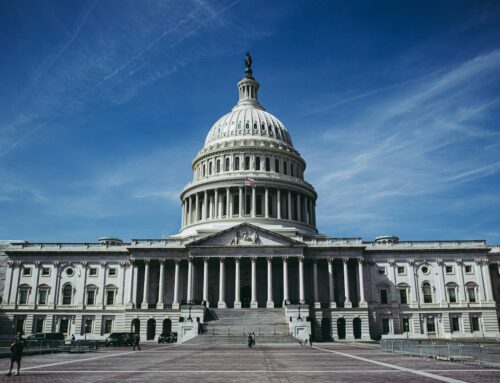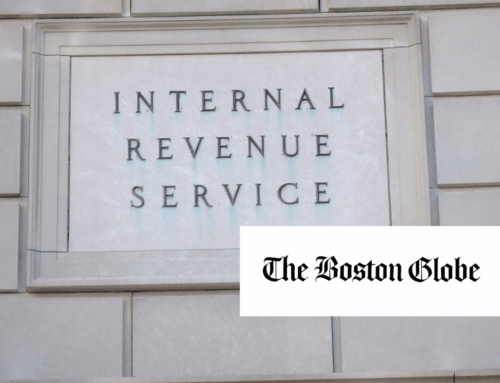This week we planned to focus our Weekly Wastebasket on oil and gas leasing, as earlier this month the first lease sale in more than 15 months was held. But then we (and everyone else) got a late summer surprise from Senate Majority Leader Chuck Schumer (D-NY) and Senator Joe Manchin (D-WV) late Wednesday night that hijacked our plan. The two Senators reached agreement on the long-anticipated Budget Reconciliation package, nee the BBB (Build Back Better) legislation, now the Inflation Reduction Act (IRA) of 2022. The draft bill is set to be voted on by the Senate next week, before Washington becomes a ghost town when lawmakers pack up and head to their respective states for the month-long August recess.
It would be an understatement to say this IRA is big policy news. The process has been stalled since December and just over a week ago took another blow when Sen. Manchin cited concerns with inflation as his reason for pushing off any package that included climate-related provisions. But with those concerns reportedly put to rest, a bill with $739 billion in new tax revenue, $370 billion in climate spending, and $60+ billion in Affordable Care Act premiums emerged from the ashes.
But first, a reminder on the process and status of the negotiations to date. Budget reconciliation offers an opportunity for passage of budget and tax priorities with a simple majority or 51-vote threshold in the Senate. Most other legislation needs 60 votes to move to a vote on final passage. This is attractive to Democrats right now as they hold 50 seats in the current U.S. Senate plus the Vice President as the tiebreaker. In November 2021, the House passed its reconciliation bill and volleyed it over to the Senate. But then in late December, Senator Manchin pulled the plug citing concerns with the cost and size of the bill. Now, back to the phoenix-like IRA.
This latest version of the budget reconciliation package covers a wide range of issues, from provisions aimed at tackling inflation and decreasing the budget deficit, to revenue raisers from natural resource reforms, to new and expanded spending and tax provisions for “clean” energy (notice the air quotes).
While Democrats had considered dozens of new tax proposals over the last year’s BBB debates, the IRA only includes two. The first is a corporate minimum tax and the second covers carried interest. The first ties into an international effort to go after abusive tax havens and make sure companies around the world are paying a certain amount of tax. And the other is going after private equity and hedge fund managers that masquerade income as capital gains to pay a much lower tax rate.
The bill includes a section on Fossil Fuels and in it there’s some good news for century-old onshore oil and gas royalty rates and decades-old rental rates and minimum bids. Onshore royalty rates would increase from 12.5 percent to 18.75 percent, in line with what states and offshore leases charge. Minimum bid and rental rates would finally be raised for the first time in more than three decades. Hooray! The bill would also eliminate the noncompetitive leasing loophole that some oil and gas companies take advantage of and increase bonding minimums so taxpayers won’t be the ones on the hook if oil and gas companies fail to clean up after themselves.
However, other provisions, or the lack thereof, is concerning for taxpayers. The repeal of the Arctic National Wildlife Refuge (ANWR) oil and gas program included in the December Senate Energy and Natural Resources Committee version of the BBB did not make it into the new bill. Moving forward with more oil and gas drilling in a sensitive and remote region like ANWR despite the lack of industry interest will only mean significant near- and long-term financial and environmental liabilities for taxpayers. The bill also ties wind and solar development to oil and gas lease sales in the name of “energy security.” Department of the Interior (DOI) shall not issue rights-of-way or leases for wind or solar development on federal land unless certain requirements for oil and gas lease sales have been met. This provision could hamper the best and most efficient use of federal lands while millions of acres are locked up in oil and gas leases and sitting idle.
When it comes to bioenergy subsidies, the bill doles out a hefty sum over the coming decade. Similar proposals were included in other legislation and the Senate Finance Committee’s Clean Energy for America Act, considered in May 2021. Our concern continues to be on the effectiveness of these subsidies to meet their intended climate goals. Independent experts found that eliminating bioenergy tax breaks would actually help the climate. Instead, Congress is proposing to expand subsidies for old types of bioenergy like soy biodiesel that have already received decades of taxpayer support despite increasing climate liabilities. More taxpayer subsidies for food-based biofuels may also increase food and fuel prices further, the opposite goal of the bill.
In the agriculture section, we have some good news! Increased investments in agricultural conservation programs could total nearly $20 billion over the next five years. Increasing spending on programs that deliver public benefits, particularly targeted toward climate and water quality outcomes, makes sense for taxpayers. It’s something we previously recommended. But, Congress mustn’t forget about reforming other parts of farm bill spending like crop insurance or otherwise progress on climate/conservation may be undercut.
Finally, while most of the 725-page bill is dedicated to climate, energy, tax, and the like, some bits and bobs made it in as well:
- Importantly, there’s $25 million for the Government Accountability Office to conduct oversight of the bill’s spending, plus another $25 million for the Office of Management and Budget (OMB) to oversee bill implementation. That’s a big ask for a relatively small amount of new money.
- The Department of Homeland Security is slated to receive an additional half billion dollars for the “Office of the Chief Readiness Support Officer” for sustainability and environmental programs at DHS. A mere 53 words, or $9.5 million per word, in case anyone’s calculating.
- The quasi-governmental United States Postal Service (USPS) would be granted $3 billion to purchase zero-emission delivery vehicles and whatever physical infrastructure is required to support these vehicles.
For more on the rest of the package, visit our FY22 budget reconciliation resource page.
But it’s not a done deal yet. The fate of the bill is still in play. Notably all 50 Senate Democrats have not signed off on the deal. Senator Kyrsten Sinema (D-AZ) had not publicly given her endorsement as of this publication. Senator Sinema raised concerns on various pieces of earlier reconciliation drafts, including some provisions in the current version. With that, stay tuned as we dive in deeper and follow the bill’s progress on Capitol Hill.











Get Social